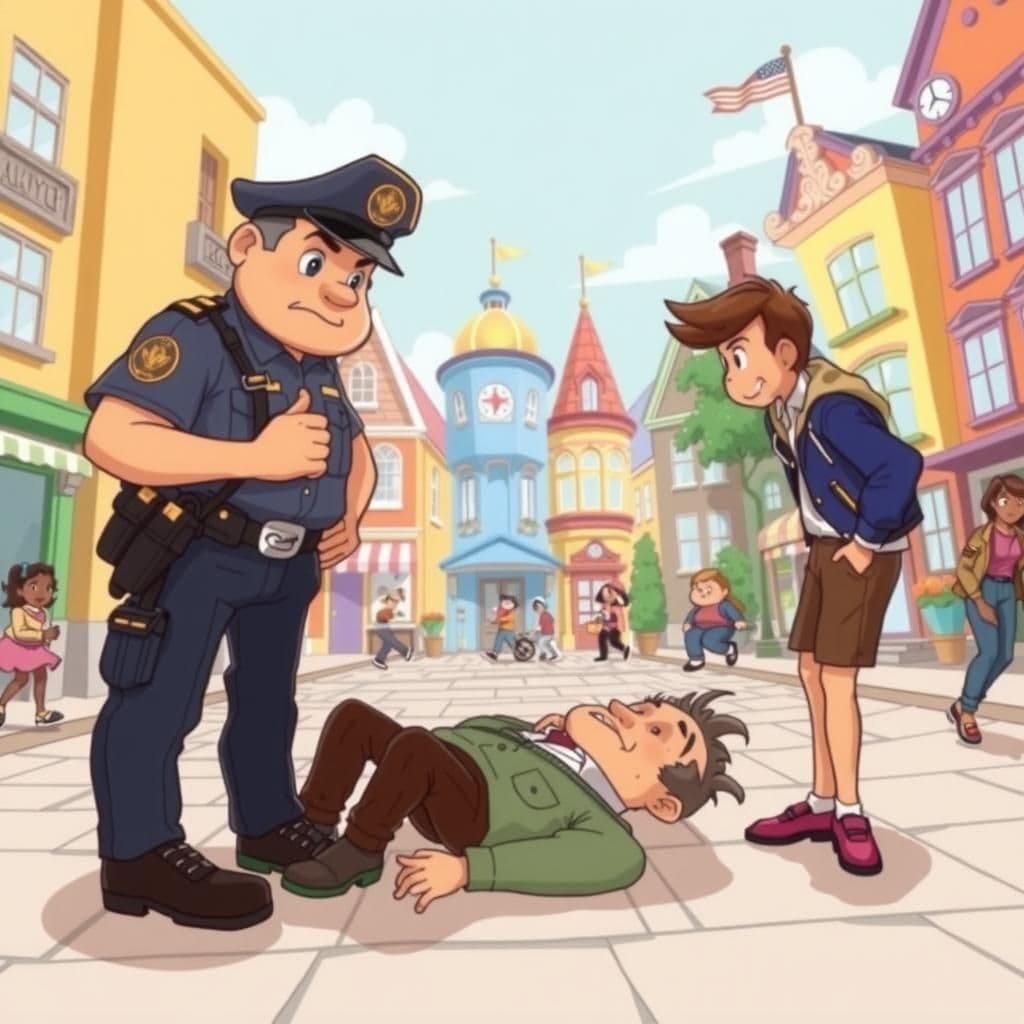The Policeman and the Citizen
In "The Policeman and the Citizen," a misguided policeman, mistaking a man in a fit for a drunkard, attacks him and then turns his aggression on a questioning citizen. This encounter leads the policeman to realize that targeting the sober is easier, allowing him to rise to the rank of Chief while sobriety vanishes from his jurisdiction. This engaging moral tale imparts lessons from moral stories about the dangers of misjudgment and the corruption of power, fitting seamlessly into collections of life-changing stories with moral wisdom.

Reveal Moral
"Abusing power against the innocent rather than addressing the true issues can lead to a corrupt and unjust system."
You May Also Like

Wasted Sweets
In this thought-provoking tale, a candidate canvassing his district kisses a baby in a carriage, believing the moment to be heartwarming. However, he is confronted with the irony that the baby belongs to an orphan asylum, and the nurse caring for it is an inmate of an institution for the illiterate, deaf, and dumb. This story serves as a reminder of the deeper moral lessons often found in well-known moral stories, encouraging personal growth through storytelling with morals.

The Man and His Two Wives
In this very short moral story, a middle-aged man with two wives—one young and one old—struggles to satisfy their conflicting desires regarding his appearance. The young wife removes his grey hairs to make him look younger, while the elder wife plucks out the black ones to avoid resembling his mother. Ultimately, his efforts to please both lead to his complete baldness, illustrating the lesson that trying to satisfy everyone can result in losing everything—a heartwarming tale with a clear moral.

The Goat and the Ass
In "The Goat and the Ass," a story often shared as a childhood tale with moral lessons, a Goat envies the Ass for its better food and persuades it to pretend to be ill to escape hard labor. The Ass follows this misguided advice, injuring itself in a ditch, which ultimately leads to the Goat being killed to treat the Ass's wounds. This culturally significant moral story illustrates the dangers of envy and the consequences of poor decisions, making it a valuable lesson for kids and students alike.
Quick Facts
- Age Group
- adultkidschildrenstory for class 2story for class 3story for class 4story for class 5story for class 6story for class 7story for class 8
- Theme
- abuse of powersocial injusticemoral indifference
- Characters
- PolicemanManCitizen
Subscribe to Daily Stories
Get a new moral story in your inbox every day.